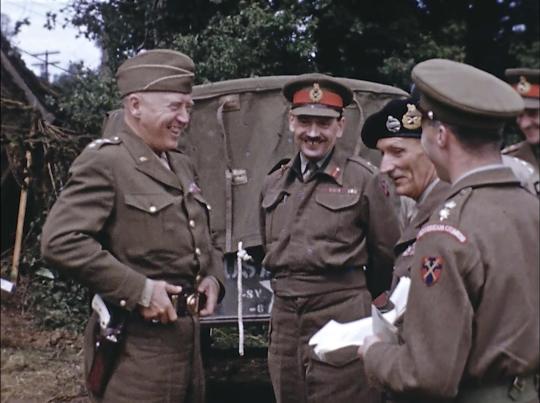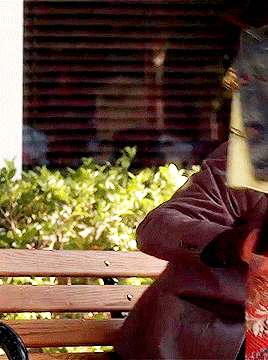#Field Marshal Montgomery
Explore tagged Tumblr posts
Photo

All very successful commanders are prima donnas and must be so treated.
- General George S. Patton
#patton#general george patton#quote#us army#world war two#second world war#leadership#war#prima donna#field marshal montgomery#allies
189 notes
·
View notes
Text


Ladies and gentlemen, eighty years ago today, Field Marshal Montgomery – Commander in Chief of the Allied Ground Forces – wrote in his message to all soldiers on the eve of D-Day:
‘To us is given the honour of striking a blow for freedom, which will live in history; and, in the better days that lie ahead, men will speak with pride of our doings��.
Today, we come together to honour those nearly one hundred and sixty thousand British, Commonwealth and Allied troops who, on 5th June 1944, assembled here and along these shores to embark on the mission, which would strike that blow for freedom and be recorded as the greatest amphibious operation in history.
Those who gathered here in Portsmouth would never forget the sight. It was by far the largest military fleet the world has ever known.
Yet all knew that both victory and failure were possible, and none could know their fate.
Aircrew flying overhead, sailors manning warships; or troops in assault craft battering their way through the stormy swell to the shore; whether dropping by parachute, landing in a wooden glider, or taking that terrible leap of faith onto the beaches... all must have questioned whether they would survive and how they would respond when faced with such mortal danger.
The poet Keith Douglas, who was killed in action three days later, wrote of the embarkation:
"Actors waiting in the wings of Europe, we already watch the lights on the stage and listen to the colossal overture begin.
For us entering at the height of the din, it will be hard to hear our thoughts, hard to gauge how much our conduct owes to fear or fury."
At this remove, eight decades later, it is a near impossible task to imagine the emotion of that day:
The pride of being part of so great an enterprise, the anxiety of in some way not coming up to scratch, and the fear of that day being their last.
I recently myself spoke to veterans who, to this day, remember with such heartbreaking clarity the sight of those many soldiers lying on the beach, who drowned before they could even engage in combat.
The stories of courage, resilience and solidarity which we have heard today, and throughout our lives, cannot fail to move us, to inspire us, and to remind us of what we owe to that great wartime generation – now, tragically, dwindling to so few.
It is our privilege to hear their testimony, but our role is not purely passive:
It is our duty to ensure that we, and future generations, do not forget their service and their sacrifice in replacing tyranny with freedom.
Our rights, and the liberty won at such terrible cost, bring with them responsibilities to others in the exercise of that liberty.
The Allied actions of that day ensured the forces of freedom secured, first, a toehold in Normandy, then liberated France, and ultimately, the whole of Europe from the stranglehold of a brutal totalitarianism.
And as we remember, with humility, pride and gratitude, let us never forget that the soldiers who fought in the campaign launched from this place came from thirty nations, from across the United Kingdom, the Commonwealth and Allied countries; while elsewhere in Europe, Allied forces continued to make vital progress in their successful Italian campaign; and while halfway around the world, at that same moment, the critical battles of Imphal and Kohima raged on in what was then Burma.
The 1944 Victoria Cross roll of honour includes Sikh, Muslim and Hindu soldiers – a reminder that events that year shaped our world then, and the society we share today.
While it was the frontline troops who faced the greatest personal dangers, the privations and sacrifices of war were endured by so many more.
The Allied victory was a truly collective effort, born of the fortitude and hard work of those who remained on the Home Front, toiling in factories, under our land in the mines, out in the fields, or working in secret – men and women alike.
Their collective industry, ingenuity and commitment helped our soldiers, sailors and airmen to prevail.
So, as we give thanks for all those who gave so much to win the victory, whose fruits we still enjoy to this day, let us, once again, commit ourselves always to remember, cherish and honour those who served that day and to live up to the freedom they died for by balancing rights with civic responsibilities to our country. For we are all, eternally, in their debt.
Source: Royal UK
youtube
A speech by The King at the UK's National Commemorative Event in Portsmouth to mark #DDay80
5 June 2024
The King addresses veterans, serving forces and and members of the public at the UK's National Commemorative Event in Portsmouth to mark the 80th anniversary of the D-Day Landings.
#Youtube#D-Day#D-Day 1944#UK National Commemorative Event#Portsmouth#5 June 1944#D-Day Landings#Field Marshal Montgomery#Allied Ground Forces#Keith Douglas#1944 Victoria Cross#Allied Forces#World War II#war heroes#war veterans#King Charles III#Queen Camilla#British Royal Family
9 notes
·
View notes
Text









fashion in rosewood in every episode → miss me x100 (5x05)
#plledit#pll#pretty little liars#creations#FashionInRosewood#alison dilaurentis#mona vanderwaal#aria montgomery#emily fields#spencer hastings#hanna marin#jenna marshall
52 notes
·
View notes
Text
#pretty little liars#polls#emily fields#spencer hastings#aria montgomery#mona vanderwaal#hanna marin#ella montgomery#ashley marin#jenna marshall
2 notes
·
View notes
Text

THEY DONT EVEN CHARGE THIS MUCH PER NIGHT TO STAY AT MARGARITAVILLE!!!!??? IT WOULD COST LESS FOR ME TO SLEEP IN JIMMY BUFFETS HOUSE THAN IT WOULD TO STAY IN A ROOM THAT LOOKS LIKE IT HOUSED THE SICK AND INJURED IN WW2!!! $285 PER NIGHT WHO DOES THE RENAISSANCE FESTIVAL THINK SHE IS?
#prattle#This is so depressing#imagine meandering around in 95° heat in a fairy costume all day and then dragging yourself into#one of these cots to relive how your grandpa felt when he stepped on a land mine in 1940#they said listen guys. ren faire is already an insane fucking ground we got to make the lodging as abysmal as possible#Field Marshal Bernard Montgomery himself is going to manifest in this cabin like the ghost of christmas past and watch if you try anything
21 notes
·
View notes
Text

See how it started to rise in 2010? That's when PLL first aired.

See the jump in popularity from 2009 to 2010, and then from 2010 to 2011? I can't affirm with 100% certainty because correlation doesn't equal causation, but PLL being on air and more people naming their children Aria are connected.
I was googling about the name Ezra and then…

Glossing over the fact that OP of the post sounded like they didn't want people to think their child was jewish because of this name (I don't know enough to make the statement that it's antisemitic but it is kinda odd), now I'm thinking about it.
How many people have named their child after their favorite character? Specifically when it comes to PLL, how many little girls out there are called Spencer, Emily, Hanna, Alison, and Aria because of PLL? I had no idea Aria was a name until I watched it. Exactly how responsible for popularizing the name Aria is it?
Ezra (I'm naming myself after him, goddamnit)? Toby? Caleb? Jenna? Shana? Mona? Like, I think of it as such a small thing because it's always on my little TV in my bedroom, but people worldwide watched this show. There's cultural impact in this mess of a show.
So I think it can be inspirational for writers. If a show as messy as Pretty Little Liars was successful enough that there's people naming their babies after the characters, then your story isn't that bad.
#pretty little liars#pll#aria montgomery#spencer hastings#hanna marin#emily fields#alison dilaurentis#shana fring#mona vanderwaal#toby cavanaugh#ezra fitz#caleb rivers#jenna marshall#seb speaks his mind
10 notes
·
View notes
Photo

Utah Beach
Utah Beach was the westernmost of the five beaches attacked in the D-Day Normandy landings of 6 June 1944 and the one taken with the fewest casualties. Paratroopers were also dropped behind Utah, and despite being widely dispersed and suffering heavy casualties, they managed to secure this western flank of the invasion and liberate the first French town, Ste-Mère-Église.
Operation Overlord
The amphibious assault on the beaches of Normandy was the first stage of Operation Overlord, which sought to free Western Europe from occupation by Nazi Germany. The supreme commander of the Allied invasion force was General Dwight D. Eisenhower (1890-1969), who had been in charge of the Allied operations in the Mediterranean. The commander-in-chief of the Normandy land forces, 39 divisions in all, was the experienced General Bernard Montgomery (1887-1976). Commanding the air element was Air Chief Marshal Trafford Leigh Mallory (1892-1944), with the naval element commanded by Admiral Bertram Ramsay (1883-1945).
Nazi Germany had long prepared for an Allied invasion, but the German high command was unsure where exactly such an invasion would take place. Allied diversionary strategies added to the uncertainty, but the most likely places remained either the Pas de Calais, the closest point to British shores, or Normandy with its wide flat beaches. The Nazi leader Adolf Hitler (1889-1945) attempted to fortify the entire coast from Spain to the Netherlands with a series of bunkers, pillboxes, artillery batteries, and troops, but this Atlantic Wall, as he called it, was far from being complete in the summer of 1944. In addition, the wall was thin since there was no real depth to the defences.
Field Marshal Gerd von Rundstedt (1875-1953), commander-in-chief of the German army in the West, believed it would be impossible to stop an invasion on the coast and so it would be better to hold the bulk of the defensive forces as a mobile reserve to counterattack against enemy beachheads. Field Marshal Erwin Rommel (1891-1944), commander of Army Group B, disagreed and considered it essential to halt any invasion on the beaches themselves. Further, Rommel believed that Allied air superiority meant that movements of reserves would be severely hampered. Hitler agreed with Rommel, and so the defenders were strung out wherever the fortifications were at their weakest. Rommel improved the static defences and added steel anti-tank structures to all the larger beaches. In the end, Rundstedt was given a mobile reserve, but the compromise weakened both plans of defence.
The German response would not be helped either by their confused command structure, which meant that Rundstedt could not call on any armour (but Rommel, who reported directly to Hitler, could), and neither commander had any control over the paltry naval and air forces available or the separately controlled coastal batteries. Nevertheless, the defences were bulked up around the weaker defences of Normandy to an impressive 31 infantry divisions plus 10 armoured divisions and 7 reserve infantry divisions. The German army had another 13 divisions in other areas of France. A standard German division had a full strength of 15,000 men.
Continue reading...
294 notes
·
View notes
Text


Colonel David Stirling passed away on November 4th November 1990.
I will keep this post short as his birthdate is only 11 days away and will fill it out a bit then.
Lt. Colonel Sir David Stirling was the man behind arguably the most elite special military unit in the world. Stirling was also known as the "Phantom Major" he founded the Special Air Service at the height of WWII. Field Marshall Montgomery, who commanded the Allied forces in North Africa at the time, said,
"The boy Stirling is quite mad, quite, quite mad. However, in a war there is often a place for mad people."
David Stirling was born November 15th 1915 the son of Brigadier Archibald Stirling of Keir and the Margaret Fraser, 4th daughter of the 13th Baron Lovat. So he came from a family that had a long pedigree in serving his country at times of need.
At the outbreak of war he joined the Scots Guards but volunteered for the elite No 8 Commando unit and served in the Mediterranean.
In North Africa in 1941, while recuperating from a parachute accident, he built on the idea of a small highly-trained special operations group attacking the Desert Fox, Rommel's long supply lines. When he failed to gain access to his commanding officer General Auchinleck to argue his case, he just slipped past the guard and walked in (on crutches) - "who dares wins," indeed.
23 notes
·
View notes
Text

Duffle coat— однобортное полупальто прямого силуэта длиной три четверти из плотной шерстяной ткани с капюшоном и застёжками на петли из шнура или кожи и деревянными пуговицами в виде палочек («моржовый клык»). Это единственная модель классического пальто с капюшоном, которая выпускается с 1890 года. В Великобритании дафлкот также называют термином monty coat — по прозвищу британского фельдмаршала Бернарда Монтгомери, часто носившего это пальто.
A duffle coat is a single-breasted, straight-cut, three-quarter-length half-coat made of thick woolen fabric with a hood and cord or leather loop fastenings and wooden buttons in the form of sticks ("walrus tusk"). This is the only model of a classic coat with a hood, which has been produced since 1890. In Great Britain, the duffle coat is also called the monty coat - after the nickname of British Field Marshal Bernard Montgomery, who often wore this coat.
29 notes
·
View notes
Text

Field Marshal Montgomery reads the inscription on a grave at the Canadian First World War memorial at Vimy Ridge, 8 September 1944.
#World War One#The Great War#1918#1917#1916#1914#first world war#history#historical#historical photos#world history#canadian history#military history#british army#Indian History#war#military#somme#Battle of the Somme#france#belgium#the western front#vimy ridge#Battle of Vimy Ridge
66 notes
·
View notes
Text
🚨🚨🚨THIS IS NOT A DRILL🚨🚨🚨
DAMIAN LEWIS IS GOING TO BE PORTRAYING LEGENDARY BRITISH FIELD MARSHAL BERNARD MONTGOMERY (MONTY) IN AN UPCOMING MOVIE ABOUT D-DAY



Also starring Brenden Fraser as General Eisenhower, and-get this- Andrew Scott, the actor who played Private John Hall alongside Damian in Band of Brothers!!! He will be portraying the British meteorologist who convinced Eisenhower to delay the invasion due to the weather. AHHHH THIS IS SO EXCITING!!!



#damian lewis#band of brothers#andrew scott#pressure movie#bernard montgomery#monty#brendan fraser#general eisenhower#eisenhower
16 notes
·
View notes
Text
Characters I Write For
Please message me with any ideas/requests! I need ideas(short fics or series)
Mostly write for fem!readers. I can write fluff, angst, smut, etc. If I’m not comfortable with something I can let you know
Character/Actor List
Favorite Characters/Actors To Write For
Draco Malfoy, Weasley twins
Jesse Pinkman
Paul Dano characters
Josh Hutcherson characters
Dean Winchester, Sam Winchester, Castiel
Damon Salvatore, Silas, Klaus Mikaelson, Kol Mikaelson
Rodrick Heffley
Bellamy Blake
Ezra Fitz(should probably make it clear I don’t condone)
Ian Duncan(Community)
Charlie(It’s Always Sunny)
Luke Castellan, Percy Jackson, Annabeth Chase
Finnick Odair
Tommy Shelby
Killian Hook
Paul Dano
Klitz(The Girl Next Door)
Dwayne Hoover(Little Miss Sunshine)
Edward Nashton(The Batman)
Calvin Weir-Fields(Ruby Sparks)
Brian Wilcox(Fast Food Nation)
Joby Taylor(For Ellen)
Nick Flynn(Being Flynn)
Josh Hutcherson
Peeta Mellark(The Hunger Games)
Mike Schmidt(FNAF)
Josh Futturman(Future Man)
Devon Bostick
Rodrick Heffley(Diary of a Wimpy Kid)
Jasper Jordan(The 100)
Cillian Murphy
Tommy Shelby(Peaky Blinders)
Dr. Jonathan Crane(The Dark Knight)
Neil(Watching the Detectives)
Christian Bale
Patrick Bateman(American Psycho)
Bruce Wayne(The Dark Knight)
Breaking Bad
Jesse Pinkman
Jane Margolis
Saul Goodman
Harry Potter(Golden Trio Era)
Harry Potter
Ron Weasley
Hermione Granger
Fred Weasley
George Weasley
Ginny Weasley
Luna Lovegood
Neville Longbottom
Draco Malfoy
Pansy Parkinson
Blaise Zabini
Theodore Nott
Daphne Greengrass
Adrian Pucey
Terence Higgs
Harry Potter(Marauders Era)
James Potter
Remus Lupin
Sirius Black
Lily Potter
Severus Snape
Regulus Black
Lucius Malfoy
Narcissa Malfoy
Bellatrix Lestrange
Arthur Weasley
Harry Potter(Fantastic Beasts Era)
Newt Scamander
Queenie Goldstein
Leta Lestrange
Percy Jackson
Percy Jackson
Annabeth Chase
Luke Castellan
Thalia Grace
Jason Grace
+ Gods
Criminal Minds
Spencer Reid
Aaron Hotchner
Emily Prentiss
Derek Morgan
JJ
Penelope Garcia
David Rossi
Elle Greenaway
Cat Adams
Megan Kane
Supernatural
Dean Winchester
Sam Winchester
John Winchester
Mary Winchester
Castiel
Charlie Bradbury
Rowena McLeod
Adam Milligan
Lucifer
Ruby
Jessica Moore
Gabriel
Benny Lafitte
Bela Talbot
Jo Harvelle
Ellen Harvelle
Superstore
Jonah Simms
Amy Sosa
Marcus White
Garrett McNeill
Dina Fox
Cheyenne Lee
Bo Thompson
Gilmore Girls
Lorelai Gilmore
Christopher Hayden
Luke Danes
Logan Huntzberger
Jess Mariano
The Hunger Games
Peeta Mellark
Katniss Everdeen
Gale Hawthorn
Finnick Odair
Johanna Mason
Haymitch Abernathy
Pretty Little Liars
Aria Montgomery
Spencer Hastings
Emily Fields
Hannah Marin
Mona Vanderwaal
Alison Di Laurentis
Jason Di Laurentis
Ezra Fitz
Toby Cavanaugh
Jenna Marshall
Caleb Rivers
The Vampire Diaries
Damon Salvatore
Stefan Salvatore
Katherine Pierce
Elena Gilbert
Jeremy Gilbert
Bonnie Bennett
Caroline Forbes
The Originals
Klaus Mikaelson
Elijah Mikaelson
Kol Mikaelson
Rebekah Mikaelson
Freya Mikaelson
Hayley Marshall
Marcel Gerard
Davina Claire
Twilight
Edward Cullen
Bella Swan
Alice Cullen
Jasper Hale
Rosalie Hale
Emmett Cullen
Victoria
The 100
Bellamy Blake
Octavia Blake
Jasper Jordan
Shameless
Fiona Gallagher
Lip Gallagher
Carl Gallagher
Frank Gallagher
Mandy Milkovich
Kevin Ball
Veronica Fisher
The Bear
Carmy Berzatto
Sydney Adamu
Richie Jerimovich
Suicide Squad
Harley Quinn
Rick Flag
Blackguard
Once Upon A Time
Emma Swan
Regina Mills
Killian Jones
Rumplestiltskin
Robin Hood
Ruby
Hades
Community
Jeff Winger
Abed Nadir
Annie Edison
Troy Barnes
Ian Duncan
It’s Always Sunny In Philadelphia
Charlie Kelly
Dennis Reynolds
Dee Reynolds
Mac
Cricket
House MD
Greg House
Robert Chase
James Wilson
Lisa Cuddy
Parks and Recreation
Ben Wyatt
April Ludgate
Andy Dwyer
MCU, Marvel
Steve Rogers
Tony Stark
Natasha Romanoff
Bruce Banner
Wanda Maximoff
Loki Laufeyson
Peter Parker(Holland, Garfield, Maguire)
Gamora
Peter Quill
Scott Lang
Steven Strange
Jessica Jones
Wade Wilson
DC CW
Oliver Queen
Barry Allen
Felicity Smoak
Laurel Lance
Sara Lance
Malcom Merlyn
John Constantine
Leonard Snart
Ray Palmer
Caitlyn Snow
Julian Albert
Rip Hunter
10 Things I Hate About You
Patrick Verona
Cameron James
New Girl
Jess Day
Nick Miller
Schmidt
Other Characters
Charlie Kelmeckis(Perks Of Being A Wallflower)
Jesse Eisenberg Characters
Dr. Who(10th Doctor)
Will Probably Add More
#draco malfoy#rodrick heffley#josh hutcherson#robert pattinson#cillian murphy#christian bale#paul dano#ezra fitz#marauders era#marauders#percy jackson#finnick odair#supernatural#damon salvatore#luke castellan#loki laufeyson#jesse pinkman#jesse eisenberg#peter parker#tasm peter parker#ian duncan#charlie kelly#jeff winger#logan huntzberger#logan lerman#killian jones#bellamy blake#carmy berzatto#fem!reader#jeremy allen white
51 notes
·
View notes
Text









fashion in rosewood in every episode → a dAngerous gAme (3x24)
#pll#pretty little liars#creations#FashionInRosewood#emily fields#aria montgomery#spencer hastings#hanna marin#jenna marshall#plledit
100 notes
·
View notes
Text
#pretty little liars#polls#spencer hastings#aria montgomery#emily fields#hanna marin#jenna marshall#charlotte dilaurentis
2 notes
·
View notes
Text
(I don't care how late to this party I am, I brought ruffles and you will let me in) I noticed something extremely sad about the Huxleypocalypse... the severe lack of old man swag, so I present:
Grand-Uncle Bertram

Keep reading for bio because long.
Full Name: Bertram Algernon Reginald Fitzwilliam Huxley Age: ~110, but moves like a 50 year old. Height: 7'3 Hair: Balder than Seth Everman but has a mustache Favorite Color: Brown Familial Relation: Grand-Uncle, Uncle of Mr Huxley.
Personality:
Bertram is the MOST British man to ever British. He is a relic of the old world, a war hero, a gentleman, a wine mogul, and a walking legend among those who know of him. He resides on his massive estate somewhere in the English countryside, where he enjoys the quiet life with his animals, his vineyards, and his grand garden.
He's always laughing, and always in high spirits—unless you insult his wine, his mustache, or the Queen (rest her soul).
He's also unbelievably strong to a degree where both scientists and religious leaders have gone mad trying to figure out how, being able to carry triple his body weight despite his age. He once punched a tree out of the ground because it "wasn't growing properly."
Despite his immense strength, he's technologically deaf. He doesn't understand technology beyond the radio, he still uses a rotary phone, and if you asked him to "Screenshot" something, he'd pull out a rifle. He also still writes with a fountain pen, and communicates via Letter.
He's also a man who cares about Family. His deepest regret in life is that he never had children of his own, he'd die for his family and would kill anyone who hurts them. The only reason he hasn't ripped Mr Huxley's jaw off and beat him to death with it is because he's intentionally being left in the dark.
Bertram also loves animals, so much so that he has 19 pets, consisting of 13 dogs, 5 cats, and a very pampered Pig. All of them extremely well-loved.
Pets:
Dogs:
Wellington (English Mastiff) - His most loyal companion, a massive beast of a dog. Churchill (Bulldog) – Stubborn, grumpy, but has a soft spot for pears. Horatio (Great Dane) – A massive lad, somehow afraid of everything. Monty (Border Collie) – Named after Field Marshal Bernard Montgomery, incredibly intelligent. Boudica (Doberman) – Fierce, fast, and only listens to Bertram. Nelson (Scottish Terrier) – Small but absolutely fearless. Victoria (Golden Retriever) – Always happy, always muddy. Tennyson (Afghan Hound) – Has the most luxurious coat. Cromwell (Bloodhound) – Nose like a weapon, frequently leads Bertram to lost items. Rupert (Saint Bernard) – Carries a tiny brandy barrel, even though Bertram doesn’t need it. Galahad (Irish Wolfhound) – The size of a horse, yet the gentlest dog on the estate. Sherlock (Cocker Spaniel) – Obsessed with sniffing out hidden things. Thatcher (Jack Russell Terrier) – A tiny menace, but godlike at catching rats.
Cats:
Tuppence (Maine Coon) – Absolute unit of a cat, bigger than some of the dogs. Jeeves (British Shorthair) – A regal, dignified feline that judges all. Moriarty (Siamese) – Chaos incarnate, has stolen important documents before. Percival (Russian Blue) – Very sleek, very smug, and very spoiled. Beauregard (Scottish Fold) – Does nothing but sleep on Bertram’s lap.
Pig:
Reginald (Gloucestershire Old Spot) – The pride of the estate. Bought for farming but immediately became family. Knows how to sit, roll over, and enjoys listening to the Radio.
War Accomplishments:
During his time in the 2nd world war, he managed to take down over:
2000+ Men 27 Tanks 19 Aircraft And a Warship
470 of those men and 5 of those tanks were taken down Barehanded, With no Shirt on, In the Snow, at Night, by Himself. This event is debated by most historians as War Time propaganda.
Wife:
Extremely dead. She was and still is the love of his life and still wears his wedding ring. Always wears a locket with a picture of her inside. Her tombstone is the most well-kept part of his estate and he brings fresh flowers daily.
Philosophy on Life:
"You see, dear child, life is rather simple. Eat well, work hard, enjoy a fine glass of wine, and if a man insults your honor, challenge him to fisticuffs immediately." - Bertram Huxley
7 notes
·
View notes
Text
Better have a good enemy than a crazy friend (cont.)
I re-used Rommel from a previous work, because I like this Rommel but dissatisfied with the other work :/

Two Scorpios. INTERESTING.
The whole thing started with this post. The said friend finally agrees to help a little bit with fanfic. She doesn't speak English and I'm clueless with omegaverse; that is a problem LOL.
Here goes nothing.

They’ve been through this ritual for… how many days now? Making love in abandonment till the slim golden dawn undulates across the desert’s pale dunes. The intercourse continues well into morning hours, when the sun begins to burn their fragrant skins a little, and the inside of Rommel’s lower belly laden with his enemy’s alpha seeds.
“Indeed, this grand scenery does not exist in Europe.” Monty says as he sits up, “here, in Africa, this is the hill I am willing to die on.” Then, he smiles at his own military humor. Rommel lazily eyes him, still basking in post-coital bliss. He could only make out “Europe” and “Africa” from the other man’s monologue.
Montgomery along with his squad captured Rommel when the daring Fox got too close to the British base, during a foolhardy scouting mission with limited supplies of his necessary medicines. Once Montgomery accidentally triggered his enemy’s omega response, the Fox becomes Monty’s willing POW-- even his iron will had to bend before this primitive drive. Rommel knew it was his own blunder, and a terrible one. He has no right to complain.
Rommel grabs the English man’s hand and places it on his abdomen, muttering a few German words. Monty playfully wanders his hand downwards between his thighs. The Fox snaps it back, places Monty’s hand, yet again, on his flat belly. Seeing Montgomery in the mood of messing around, Rommel gives up communication, punches him squarely in the face, gets up, collects his clothes, promptly walks off towards the general direction of the Afrika Korps.
Montgomery does not treat him like a POW. It’s his own blunder. Rommel thinks to himself in utter frustration.
“Wait! I apologize! What is it you want to say? I'm listening!” Montgomery catches up to him, his face freshly swollen from the punch. He has nothing on him but his iconic black beret and underwear, a rather pathetic sight for this good general, but one that gives Rommel the illusion that the otherworldly love between enemies is possible.
Rommel sighs, damn this language barrier, damn that this barrier is powerless against enemy penetration into his soul. He carefully brings out a medal from his uniform front pocket, places it in Montgomery’s palm. It is both small and light and incredibly heavy, its color creamy porcelain blue.
“I am a man of duty, both to my country and my wife. I cannot further blacken my already tainted conscience.” He says, in a tongue he knows the other man does not comprehend, “But I do owe you. I’ll bring this child to you and reclaim my honor, eventually. I’ll be a part of their life until the very end of mine. This embodies my highest promise to you.”
Montgomery could tell it is the renowned Pour le Merite, prized treasure of all the 3rd Reich's officers. His heart sinks a little.
“Here.” Monty takes the golden badge off his beret, his movements clumsy with haste. “This represents me, all those politicians, and the civilians back in London recognize my status by this symbol. May it be with you, as though I am with you.”
“Thank you.” In a low voice, he speaks the only English he knows. Rommel's intention is to come back for his medal, but Monty has a hunch, they'll never see each other again.
///
Tension runs high in the OKH headquarters. Both Halder and von Brauchitsch are absent. Hitler throws the papers flying across the mahogany table. Apart from that, the room is eerily silent.
“I am not going to approve of your discharge, Field Marshal Erwin Rommel.”
“Since I am also implicated in the conspiracy case, Führer, I…”
“Don’t Führer me, you traitor, you whore!” Hitler snaps at him, already showing signs of nervous breakdowns, “Goebbel has been working his head off to promote you as our Reich’s prominent alpha hero! Only a few of us knew what you really are. You have that little extra bit to make you a whore.”
“There never have been any intention in my heart to betray you, Führer . I am speaking with my soldierly honor and utmost honesty. You knew me.”
“You used to be my personal security, but that was in the past. I don’t think I know you anymore.”
True, the trust has been broken completely. Rommel holds loyalty to his country, but not to this angry mess in front of him. Not anymore.
The Führer’s bloodshot eyes darts around his neck: “where is your blue cross Pour le Merite? What is that thing on your chest?”
“It is Field Marshal's gold wire embroidered badge…” Rommel paused, “of the British Army.”
“so you are literally in bed with Bernard Montgomery. I mean, physically and who knows what else, Is that so?”
Rommel understands at this point, in Hitler’s eyes, it is further confirmation of high treason. This whole conversation is a demonstration of his political naivety.
“Who else knows about this... scandal? Does Von Rundstedt know? Your wife Lucy?” Hitler motions the slightly visible bump in Rommel’s belly. Rommel shivers in disgust. He feels exposed.
“My trustworthy chief of staff Alfred Gause does. No one else.”
“Gause runs a good staff. He does not keep a good eye on you for me, however.” Hitler coldly comments, “Does HE know? I mean, the other father.”
“I cannot confirm that.” Rommel whispers.
“I bet that Brit doesn’t speak even a little bit of German. You may as well fuck all day and not exchange a word.” The Führer’s voice is loaded with irony. Rommel falls into a grey silence, a hint of red flies onto his cheeks.
“Old friend,” Hitler changes his tone, a manipulator that he is, “I could still find it in me to forgive you, on one condition: you take a bite of one of these bitter medicines.”
Two black boxes, one contains a cyanide pill, the other an abortion tablet.
“Choose, it’s Führer’s order.”
Rommel chooses; hands steady, his gaze dark. The choices are cruel, but one of them allows him to not break his promise. He’s a man of duty, after all.
“Don’t you beg for mercy?”
“I obey your order, mein Führer.”
He leaves with the pill option. An SS officer escorts him outside.

Friend- Hehe I am satisfied with the historical accuracy.
Me-

#wwii germany#3rd reich#erwin rommel#desert fox#fanfic#bernard montgomery#omegaverse#there is no historical accuracy here thank you very much#wehrmachtblr
40 notes
·
View notes